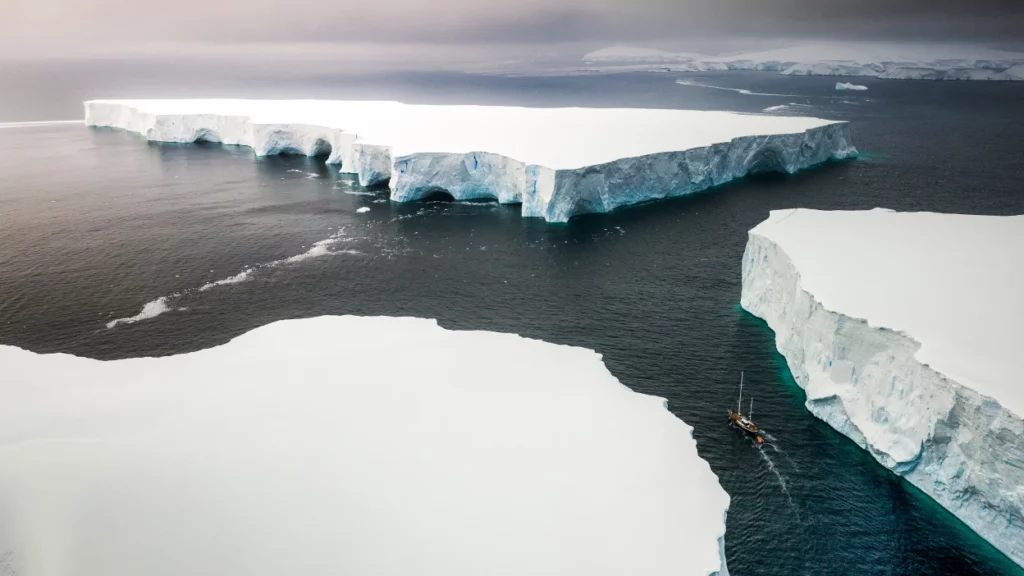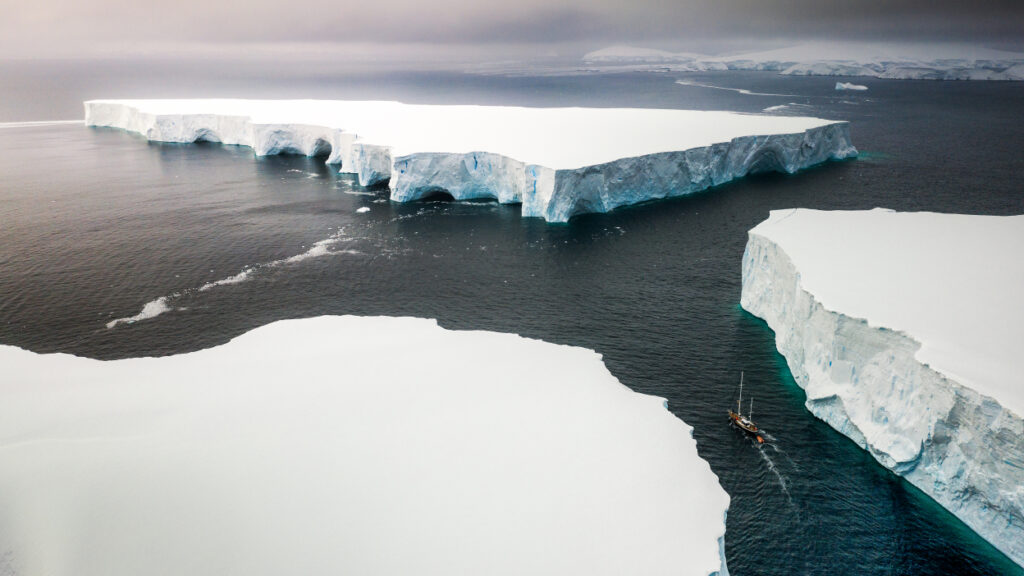When you get a news story about climate change, it inevitably tells you scientists have looked at something going on in the world, discovered it’s worse than we thought, and concluded that greenhouse gases are to blame. Which at least saves you the trouble of reading further. Except that if you do, you sometimes learn that scientists did not find what journalists claimed up front. For instance we learn from Eurekalert that the Thwaites Glacier ice shelf in Antarctica is being “thawed by a warming ocean more quickly than previously thought." So why does the lead scientist mention something being more stable than previously thought?
The story in question results from a creative experiment involving “newly digitized vintage film” dating all the way back to the 1970s when, over eight years, scientists flew over the Antarctic recording ice-penetrating radar readings on 35 mm film. Subsequent radar soundings were sporadic until after 2009. So the scientists found a way to digitize the 1970s records to make them comparable to the modern ones.
The result? Glaciers melting and washing away Manhattan? Not exactly. One part of the Antarctic, the Thwaites ice shelf, thinned between 10 and 33 percent over the 40 years of records. Another part, the Filchner-Ronne Ice Shelf basal channel, didn’t change at all. And part of the Thwaites ice shelf regrounded and became stable. And maybe it’s all due to a warming ocean. Except the rate of submarine melting slowed between the 1978-2004 and 2004-2009 segments.
The conclusion? In the underlying article the authors don’t say it’s “worse then we thought”, more like “we didn’t know what to expect and we saw lots of interesting patterns.” The Eurekalert article quotes the lead author that "[We] were able to have one ice shelf where we can say, 'Look, it's pretty much stable. And here, there's significant change'.” The headline rephrases that as “Thwaites Glacier ice shelf melting faster than previously observed.” Well yes, because it wasn’t previously observed so any data would be new; it could also be phrased as “melting slower than previously observed”. And what about the other parts? From there the journalist spins out the money phrase “thawed by a warming ocean more quickly than previously thought” in the first sentence of the article. Maybe hoping you wouldn't read any further.


